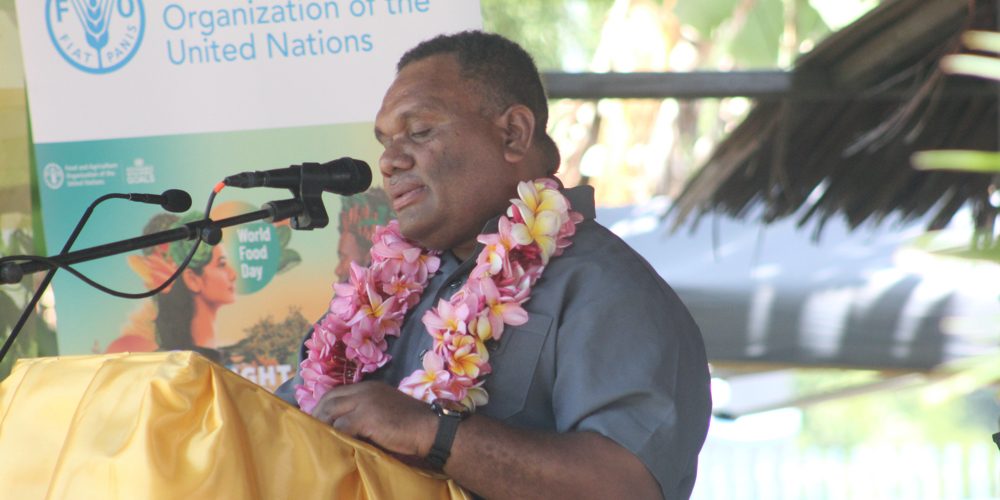Agriculture has been promoted as the cornerstone of the national economy.
Minister for Ministry of Agriculture and Livestock (MAL), Franklyn Derek Wasi took the opportunity of the opening of the three-day World Food Day celebration in Honiara on Wednesday to underscore its importance.
Delivering the keynote address at the occasion held at the FOPA Village in East Honiara, an impassioned Minister Wasi said, like in many other developing countries, agriculture serves as the primary source of national income in Solomon Islands, sustaining approximately 85 percent of the rural population through ‘food crops, cash crops and livestock.’
He said food crops, cash crops and livestock are essential for the daily livelihood and social security of Solomon Islanders.
Moreover, Minister Wasi said on average, the agricultural sector, excluding fisheries and forestry, contributes about 16 percent to the country’s Gross Domestic Products (GDP).
He said the theme for this year’s World Food Day: “Right to food for a better life and better future”, challenges Solomon Islands as a nation to reflect on how it can ensure that everyone has access to nutritious and sufficient food.
“It also prompts us to consider our responsibility to protect our environment in the process,” the Minister added.
Minister Wasi also took the opportunity to underscore the Government for National Unity and Transformation’s (GNUT’s) recognition of the immense potential of agriculture driving the country’s economic growth.
He said in order to achieve sustainable development, GNUT’s Policy for MAL is built on two fundamental pillars:
- Making agriculture attractive across all levels of society to ensure the long-term sustainability of the sector; and
- Growing and strengthening agriculture as the economic backbone of the Solomon Islands.
The Minister said the strategies to achieve these policy intentions include:
- Organizational and functional restructuring;
- Reviewing relevant agricultural laws and formulating new legislation and regulations;
- Revitalizing extension services;
- Increasing the range of commodities and value-added products;
- Diversifying agricultural production;
- Building research capacity through the agriculture research center; and
- Making agriculture attractive and resilient to climate change.
Minister Wasi said the implementation of these policies through these strategies over the next four years will transform MAL into a more effective organization and ultimately will ensure a robust agriculture industry for Solomon Islands.
“The formulation of new policies, legislation and regulations will ensure that our efforts are relevant, effective and aligned with current challenges and opportunities.
“We anticipate enhanced agricultural extension services, increased export trade, a rise in domestic- driven agricultural production and a decrease in agricultural imports.
“Together, these initiatives will lead to tangible and innovative agricultural development and foster a more resilient agricultural sector,” he said.
By IAN LADDS OSO
Solomon Star, Honiara









